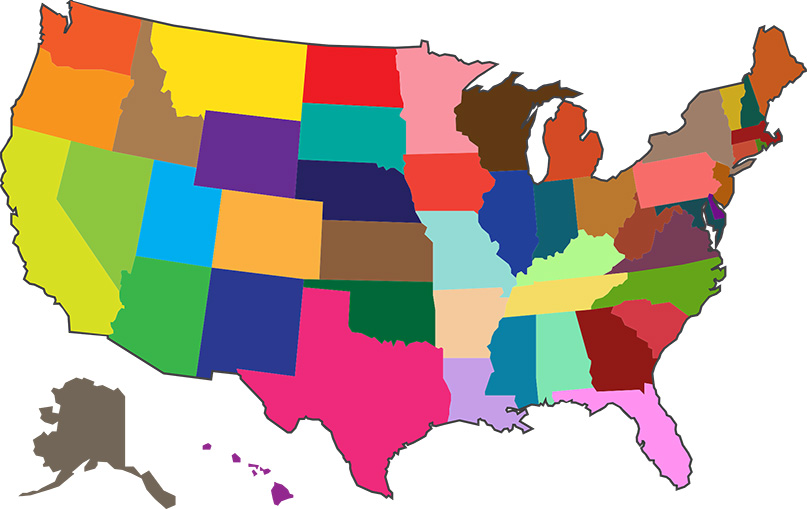A Tricky Area of Law
Is this noncompete enforceable?
Does the plaintiff have a claim, or has the statute of limitations already expired?
Are punitive damages a possibility in this case?
The answer to these questions might depend on which state’s laws govern a case.
Sophisticated business clients are often aware that state laws can vary significantly and that which state’s laws apply to a case can meaningfully affect the outcome of a case. Oftentimes, contracts include venue and choice of law provisions, meant to take the guesswork out of figuring out both where to bring a lawsuit and what law will apply. But many disputes aren’t covered by a binding choice of law provision. Tort claims, for example, (like unfair business practices claims or breach of fiduciary duty claims) are not subject to these contract terms. Given how much commerce these days crosses state lines (sometimes with something as simple as visiting websites hosted in other states or making a call to an out of state number), many seemingly straightforward disputes can present complex choice of law questions. Cases can even involve the application of a foreign country’s law.
The Forum State
Where a lawsuit is brought is called the forum state. The forum state will automatically apply its own laws to every lawsuit brought unless one or more parties successfully argue that a different state or country’s laws should be applied. Most states declare that there is one jurisdiction whose law governs the whole case. California is trickier – multiple different states’ or countries’ laws can apply to different parts of the case. Part of the case may be governed by California law, another part might be governed by Arizona law, and yet another element by Mexican law. If this sounds confusing, it is — even to most experienced attorneys. That’s why in a 2019 opinion, the California State Supreme Court said, “Perhaps no legal subject has caused more consternation and confusion among the bench and bar than choice of law.”
Once a question comes up suggesting another jurisdiction’s laws might apply to a case, California courts apply a complicated analysis to first see if there is a real conflict between the other jurisdiction’s law and California’s (if there is no “true conflict,” meaning the laws are substantially the same, California just applies its own law). If the court determines there is a conflict between the other state’s laws and California’s, the next step involves determining what each state’s interest is in having its own laws applied. The court finally determines which state’s interests predominate.
As mentioned above, in California, this analysis has to be applied to each and every issue in the case that might be governed by a different state’s laws. Now you can see why the California Supreme Court thought this was such a confusing issue for both judges and lawyers!
How These Issues Arise
The law in California requires that if a party believes that the law of another state or country should apply to the case, they need to raise the issue with the court in a “timely” manner. The problem is, there is no definition of “timely,” anywhere in statutes or case law to give a definitive answer as to when you have to raise the issue. Litigants may try to spring the choice of law issue as a surprise right before trial, arguing that another state’s law, which differs from California’s, should be applied to the case. It seems reasonable to assume that “right before trial” is too late to argue that the court and the parties should be applying a different jurisdiction’s laws, but without experienced counsel, you could find yourself ambushed by a late choice of law argument that, if accepted by the court, could sink your case.
Why Experienced Counsel Can Make All the Difference
Lawyers who have handled complex matters involving difficult choice of law analyses don’t tend to forget how challenging the experience can be. They know the importance of getting the choice of law analysis right for your claims and defenses. They also understand how critical it is to prevent your opponent from ambushing you with a late choice of law argument. Most importantly, they know the discovery tactics and tools to address these issues and build the strongest case possible.
Keller/Anderle’s attorneys have successfully resolved complicated choice of law matters in some of our biggest cases, achieving outstanding results for our clients. In fact, our attorneys educate other leading attorneys on how to handle this extremely thorny issue.
Bring us your toughest cases; the ones where your company, your reputation, or your livelihood are on the line. We’ll get the job done

